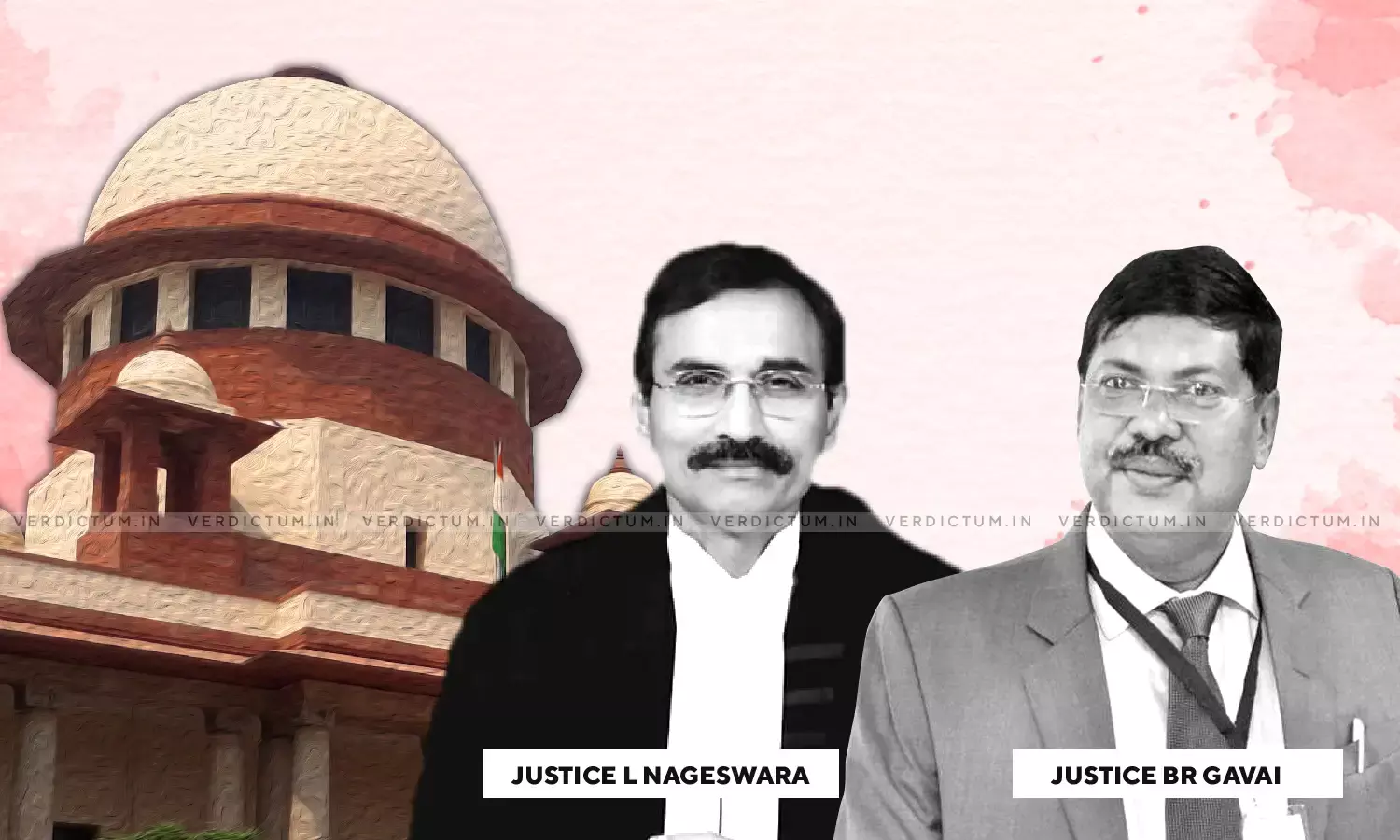Supreme Court Sets Aside Conviction Of Former Lieutenant General In Alleged Ration Scam

A two-judge Bench of Justice L Nageswara Rao and Justice BR Gavai has set aside the conviction of a retired Lieutenant General Mr. SK. Sahni in an alleged ration scam and acquitted him of all the charges that were leveled against him.
The Court has set aside the order of dismissal of service and acquitted the Lieutenant General who was held guilty by the General Courts Martial (GCM) on the allegations relating to the procurement of ration by Army purchase organization.
In this case, the Respondent - Lieutenant General was commissioned in the Indian Army and was appointed Director-General, Supplies, and Transport (DGST). A complaint was filed against the Respondent to which the Court of Inquiry (CoI) was ordered against the officer under the directions of the General Officer, Commanding-in-Chief to investigate the seven allegations, including on procurement of kabuli chana through contract finalized during the relevant period by the Army Purchase Organization.
Thereafter, the Respondent approached the Delhi High Court seeking to quash and set aside the proceedings and recommendations of the CoI in terms of order dated May 26, 2005, and also the order of July 18, 2006, directing his attachment.
The Petition was allowed by the High Court and later, the authority resorted to Rule 22 of the Army Rules and issued a fresh notice and ordered attachment under section 123 of the Army Act.
The Armed Forces Tribunal (AFT) held that resorting to Rule 22 was totally unwarranted and illegal and the Authority was directed to resort to CoI after giving an opportunity to the Respondent.
Later, the GCM in its order held that the Respondent was guilty of certain charges and sentenced him to undergo rigorous imprisonment for three years and the Respondent be cashiered.
It was contended by Counsel Mr. KK Tyagi appearing for the Respondent before the Apex Court that since the members of the GCM were below the rank of the Respondent, the GCM was not properly constituted and as such, violative of sub-rule (2) of Rule 40 of the Army Rules.
Further, it was argued by Mr. Tyagi that from the perusal of the order it would be clear that about 80 Lieutenant Generals were available in the Indian Army at the relevant time, and as such, the Court-Martial which had Members below the rank of Lieutenant General, could not have tried the Respondent. Therefore, the GCM which was constituted in contravention of sub-rule (2) of Rule 40 of Army Rules could not have tried the Respondent.
While relying on the judgment of Union of India and Another v. Charanjit S. Gill and Others, Mr. Tyagi further argued that in view of Rule 102 of the Army Rules, since the JAG who was of the rank of Colonel, which is below the rank of Lieutenant General, stood disqualified while acting as a JAG.
Senior Counsel Mr. Balasubramanian appeared for the Appellant – Union of India before the Apex Court.
The Supreme Court noted that the AFT came to a conclusion that it could not be said that the Respondent had actually committed fraud or did any such act which resulted in actual loss or wrongful gain to any person.
In this context, the Bench held –
"The learned AFT has specifically come to a finding that the respondent has not committed any fraud or did not commit any act which resulted in actual loss or wrongful gain to any person. We are unable to appreciate as to on what basis the learned AFT comes to a conclusion that the acts lead to an inference that the attempts were made to cause a wrongful gain."
The Court also held that the findings recorded by AFT are totally contrary to the material placed on record.
The Court further opined that the orders passed by the AFT as well the GCM were not sustainable in law, hence the appeal deserved to be dismissed.
Accordingly, the Court dismissed the appeal, set aside and quashed the order of the GCM and AFT holding the petitioner guilty and imposing penalty on him and acquitted him of all the charges leveled against him.
Further, the Court directed that the Respondent – Petitioner would be entitled to all the pensionary benefits.
Click here to read/download the Judgment

